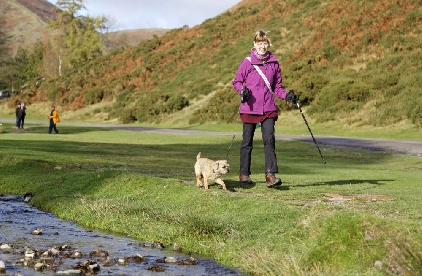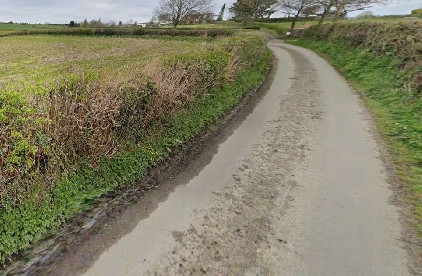
Ahead of the busy Easter holiday period, National Trust rangers and members of the Longmynd Commoners Association (LCA) are urging dog owners to keep their pets on leads during breeding season (1 March – 31 July) at an important working landscape and conservation site in Shropshire.
The Longmynd is an ancient common, grazed by sheep and ponies, which are owned and cared for by the LCA. Together with the National Trust, both organisations are asking visitors to keep their pets on leads this spring and summer to minimise disturbance to breeding livestock and their young.
The upland heathland habitat on the Longmynd Common is home to some rare species of ground nesting birds, including red grouse, skylark and curlew. These species of bird are severely under threat across the UK, due to habitat decline and loss.
Patrick Edwards, National Trust Area Ranger said: "While the upland habitat is protected on the Longmynd, disturbance from dogs is a significant concern, particularly around breeding season. Birds that make their nests, lay eggs and raise their chicks on the ground, are easily distressed by dogs roaming off footpaths into the undergrowth. Thank you for respecting the signs that ask for your dog to be on a lead – we're really pleased to welcome responsible dog owners on the Longmynd."
Dave Davis, Longmynd Commoner said: "The sheep and ponies can thrive in the harsh hilly conditions, due to their hardy Welsh Mountain breed, but both need to be able to graze peacefully to be healthy and productive. Sadly, year after year, many sheep and lambs are injured or killed by a dog chasing or attacking them. Please keep your dog on a lead during this sensitive time to protect livestock and wildlife that live and breed in this special habitat."
Signs, asking walkers to put their dog on a lead where sheep are present, are visible throughout the landscape. Both organisations are pleased to welcome responsible dog walkers and would like to thank those visitors for taking the lead. Dog owners who fail to control their dog around livestock and in areas of sensitive habitats could face a fine or even prosecution.

 Powys councillors vote to consult on proposed tourism tax
Powys councillors vote to consult on proposed tourism tax
 MP urges Prime Minister to keep Armed Forces Covenant Pledge
MP urges Prime Minister to keep Armed Forces Covenant Pledge
 Revealed: The main roads in Herefordshire prioritised for repairs
Revealed: The main roads in Herefordshire prioritised for repairs
 Villagers fustrated over lack of road repairs
Villagers fustrated over lack of road repairs
 New Food and Drink group launched at online event
New Food and Drink group launched at online event
